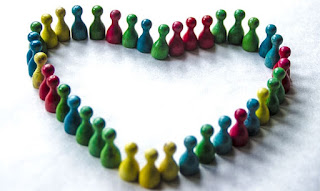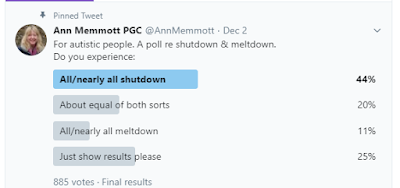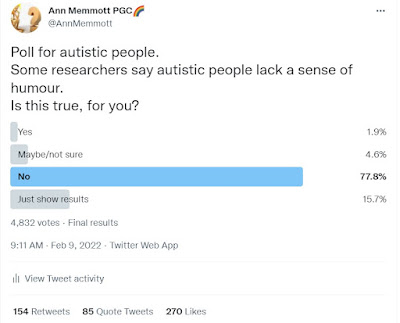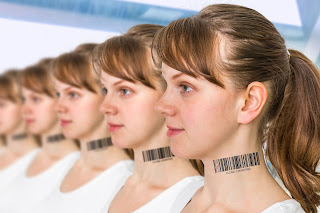In November 2020, the Church of England produced a website filled with books, videos, papers etc about Christians and what people think of LGBT+ individuals. There is a nearly-500-page book, for example. Those wanting to look at the rest of the materials need to register, working through complicated log-in instructions. https://www.churchofengland.org/resources/living-love-and-faith
It might help to know how I fit into this subject. I wrote the CofE's autism materials, kindly hosted by Oxford Diocese at https://www.oxford.anglican.org/wp-content/uploads/2019/03/Autism-Guidelines-2019.pdf I have the honour of working with the St Martin in the Fields disability conference planning group, co-running national conferences on autism and other neurodiversities, as well as on disability, with Inclusive Church. I have recently been working with the HeartEdge group, on recordings around autism, and I'm a fairly-regular on Radio 4, providing prayer and reflection sessions around autism and faith. I am autistic, a carer to autistic individuals, work for the NHS on autism in my roles for a national and an international autism organisation, and am an external tutor on the topic for University and NHS courses, training Clinicians including Psychiatrists. I am delighted to work within teams training Clergy and work with the Colleges in providing advice on Ordinands and those doing theological training, and I'm undertaking a second Post Graduate qualification in the subject. I have written a lot about LGBT+ and intersectionality. I'm part of both communities, working with so many fantastic people from whom I learn so much.
A third of the two million autistic people in the UK are also part of the LGBT+ communities. It's a simply massive number. About 600,000 people. The size of a huge city. People of all ages, all kinds, all backgrounds. People of faith, honesty, integrity.
Everything we thought we 'knew' about autism has changed so radically in the last few years with the new research. Everything. Gone are the myths about it being some bizarre mental health condition affecting only young white boys in a care home, with an 'empathy deficit', who either spotted trains, did number tricks, or hit people. What a dreadful set of myths those were, ignoring the voices of autistic people almost entirely. Autistic people are now generally shown to be filled with empathy, with dedication. People of all ethnicities, all ages, all backgrounds, all IQs, and as likely to be Christian and in church as anyone else. Want the academic research on all of this? Try https://annsautism.blogspot.com/2019/01/autism-some-vital-research-links.html Want to find out what thousands of autistic people think? Try, e.g. https://annsautism.blogspot.com/2020/09/so-what-might-autistic-people-think.html
Why tell you all this? Because when I read what was in the Living in Love and Faith website about autistic people, I simply wept for the lovely autistic people I know, and for the teams who have worked so hard with the Church of England for so long. I'm not alone. The shock is everywhere I look in our communities.
The LLF project talks about love and faith, about learning and sharing, about hearing from one another and valuing difference. It mentions the ethnic minority communities in loving and thoughtful ways many times, as an example of diversity. Except, it doesn't talk about those positives for us.
For the 600,000 of us who are autistic and LGBT+, the main 500 page book has one mention. Here it is.
"There also appears to be some co-occurrence of gender dysphoria and autism".
Er, that's it.
That's all there is. Just a medicalised phrase. 600,000 of us compressed into just that, a medical phrasing about gender.
It gives a reference to background materials, so I went on a quest to find them. What a quest it is. Register, log in, search, search within the search, half an hour later...eventually....
...and the shock got worse. Here is the loving, caring phrasing....

The LLF materials are not a medical textbook. This is not a Psychiatric discussion about autism, is it.
What on earth was that doing in there as the only reference to us?
Autism is not a mental health condition. Even the National Autistic Society is very clear on that.
What happened?
How did the church forget about all the work we've been doing?
How did the church forget to engage with the fabulous, caring, loving Christian autistic people in their churches? The ones leading. The ones praying. The ones worshipping. The ones providing music and singing. The ones ringing the bells, doing the finances, sorting out the parish bookings. The ones providing friendship and cheer to others, or deep technical skills in keeping churches going? The creative autistic people doing the artwork, the stained glass, the carving, the cleaning, the theology, the poetry, the writing.
How did all of that - all the magnificent diversity, all that love, all that sharing and learning - get compressed into asking a passing Psychiatrist to write a paragraph describing us as a Disorder, for heavens sakes?
We have a church that is so obsessed with seeing us only as a Disorder dealt with by Psychiatrists. What does that say about their own anxieties?
I am still tearful. These are my people. They deserved better.
Autistic people who are also part of the LGBT+ communities often live hellish lives in society, filled with ostracism, bullying, hatemongering, defrauding, violence, assault, and predatory behaviour.
So many stand at church doors, trembling with fear about what they might find within. Will it be love? Or will it be some Psychiatrist dispensing a clinical phrase at them before everyone turns away, anew? What on earth would you think of an autistic Priest, after reading that description of autism? Do you know how many there are, doing a fabulous job, quietly, lovingly, diligently? Forced to hide all that they are? Do you know the links between forcing people to live an inauthentic life, and suicide? Is that all we have to look forward to, here?
I am grateful to the many colleagues with whom I work nationally on this, bringing their authentic selves into the light. Moving away from shame and fear. Finding one another, and learning that autistic people have a naturally different social communication system, many with a naturally different set of senses that work in harmony with those of others to protect people and ensure society thrives. We've learned so very much about autism.
Church of England, when you wrote all of this material, and shoved us into the back reaches as a 'disorder'....
....Where was the love?



































